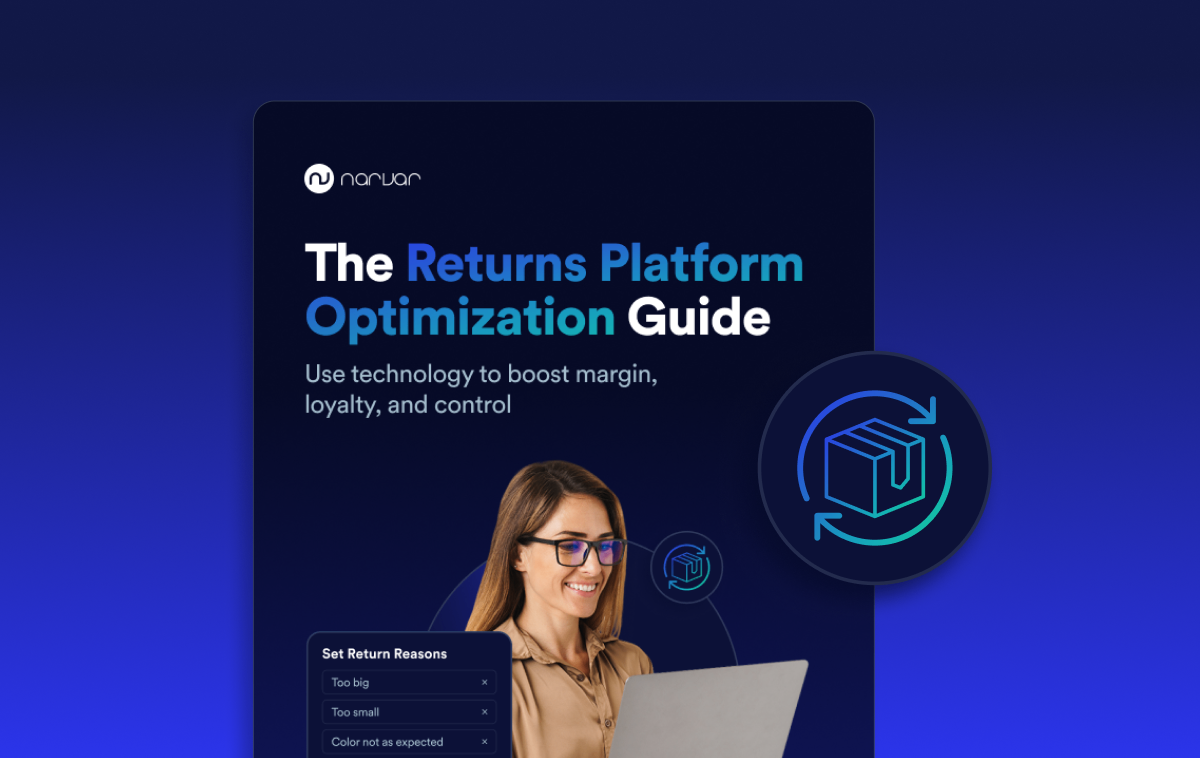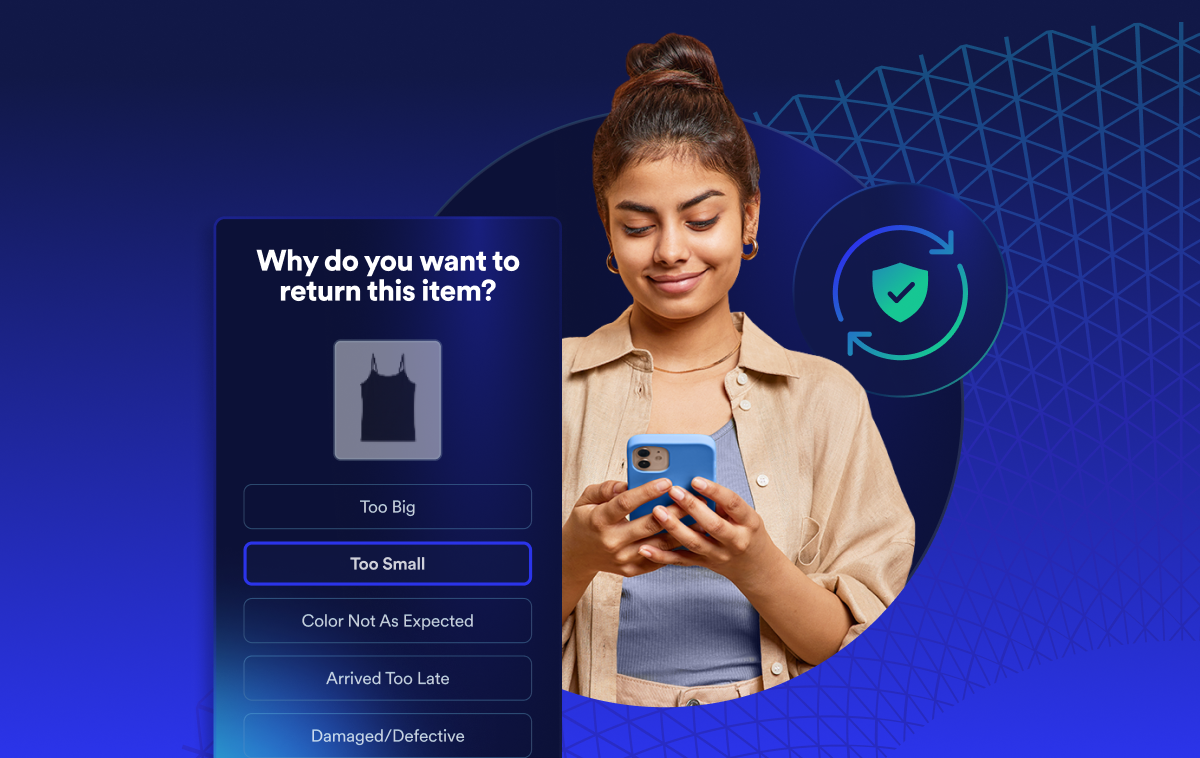

Narvar Agentic
Products
PRODUCTS
Promise
AI-powered delivery date estimates to boost conversion
Secure
Give shoppers peace of mind and protect and grow your bottom line
Track
Personalized tracking experiences to build brand loyalty
Shield
Returns and exchanges management to mitigate fraud and reward best customers
Notify
Proactive communication to drive customer lifetime value
Assist
Delivery claim management to tackle fraud and build trust
Solutions
Customers
Resources
Company
Narvar Blog
Sharing perspectives, trends, and actionable content from leaders shaping the post-purchase experience.
Thank you! Your submission has been received.
Oops! Something went wrong while submitting the form.
Browse all
GET STARTED
Power every moment after the buy
Build trust. Protect margins. Drive growth — “Beyond Buy.”


































